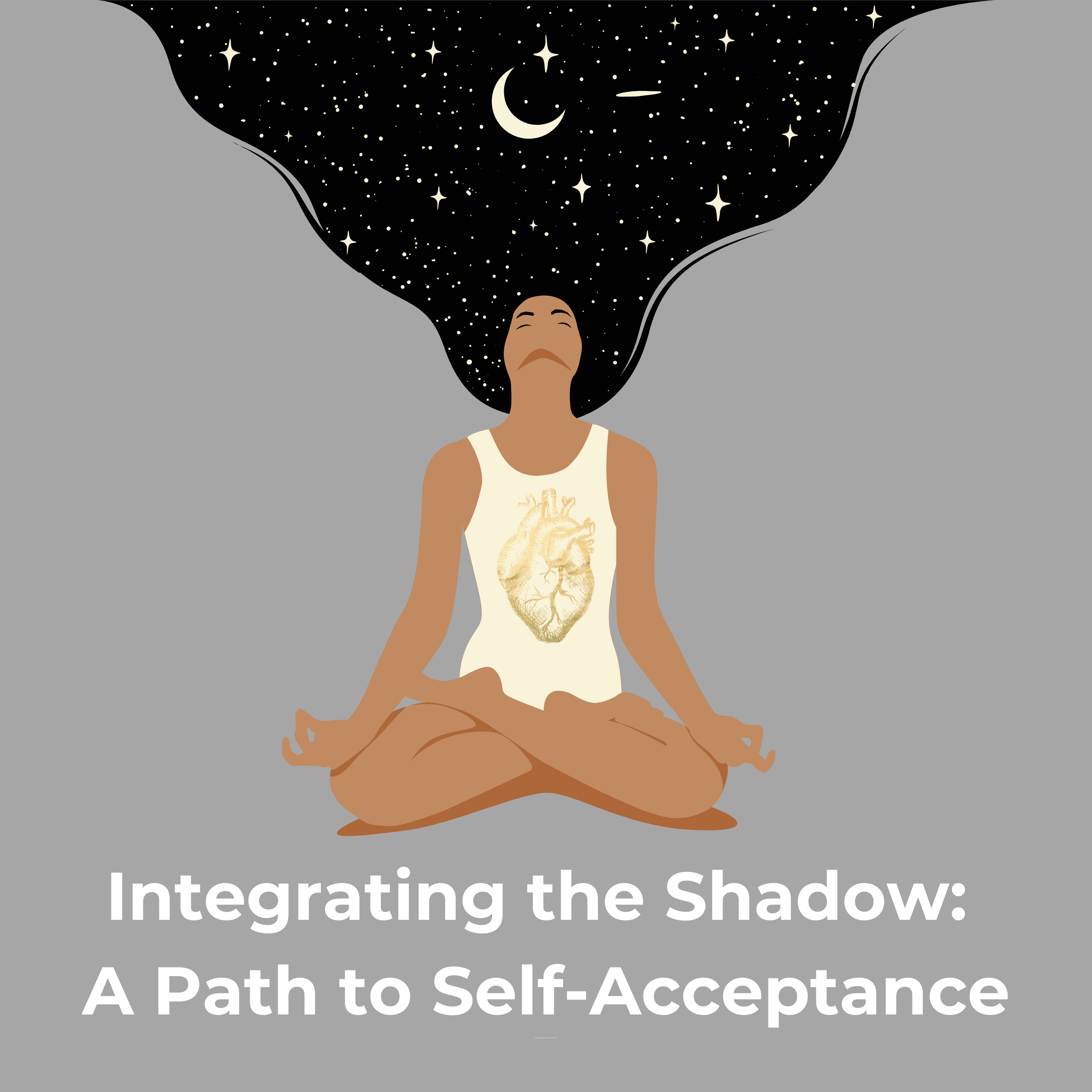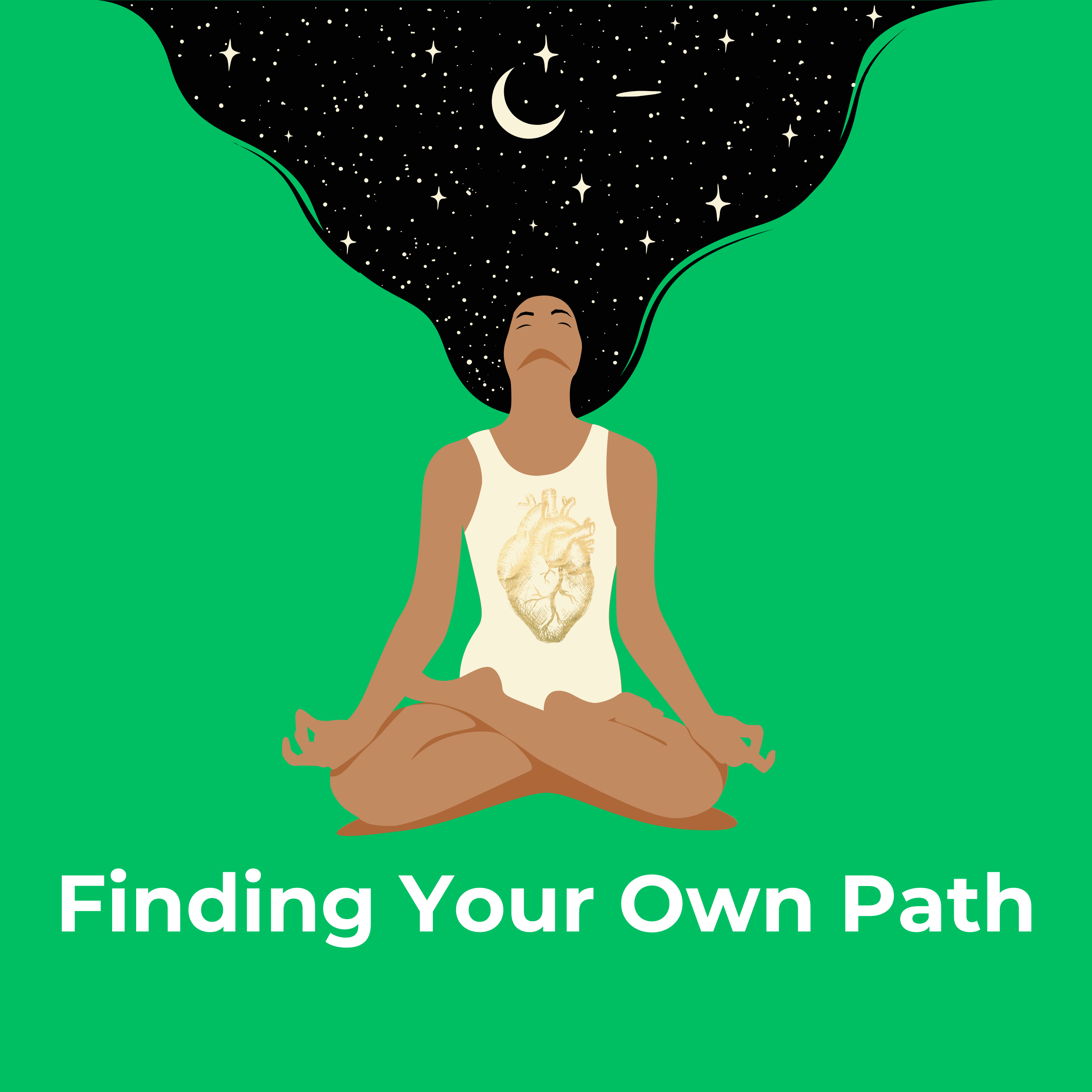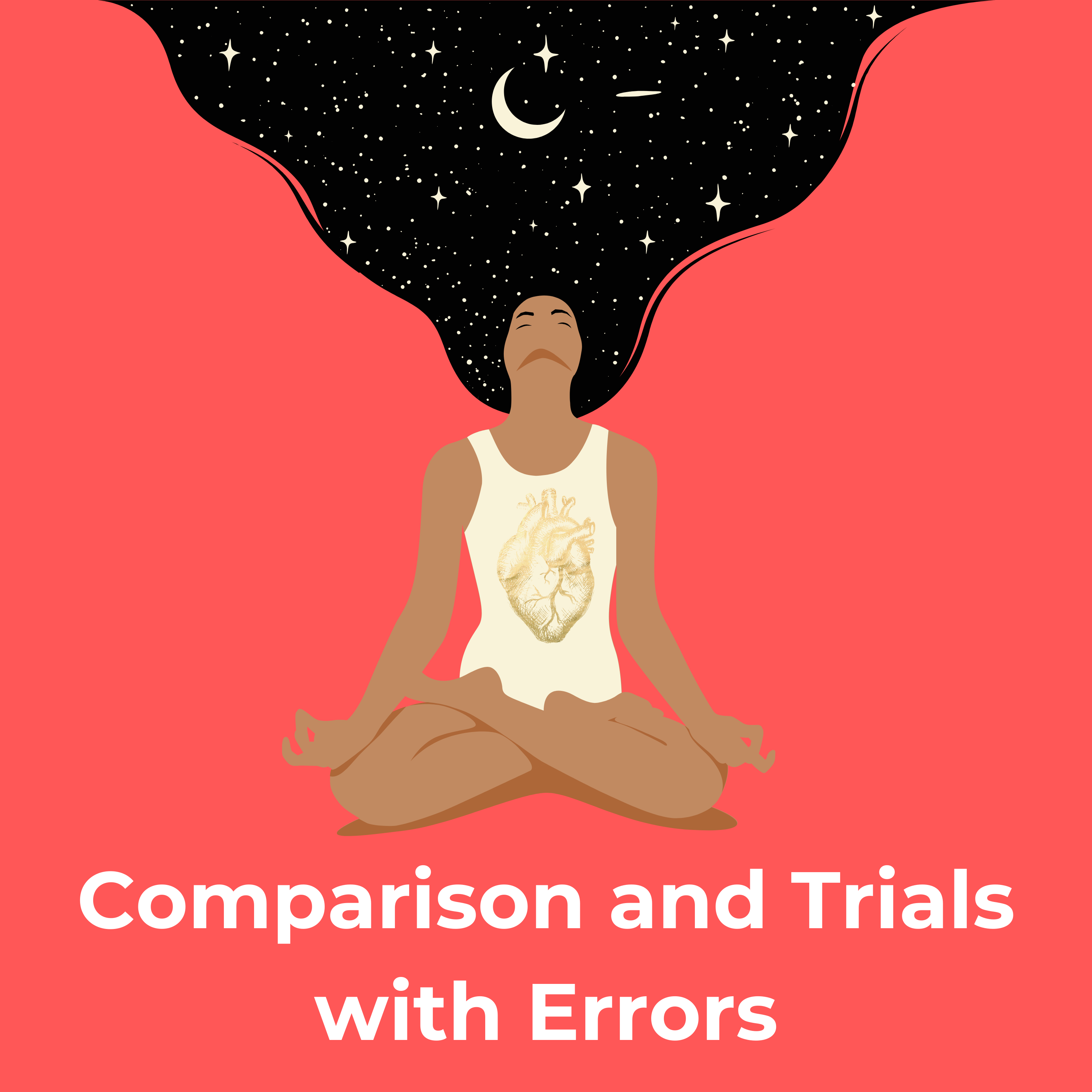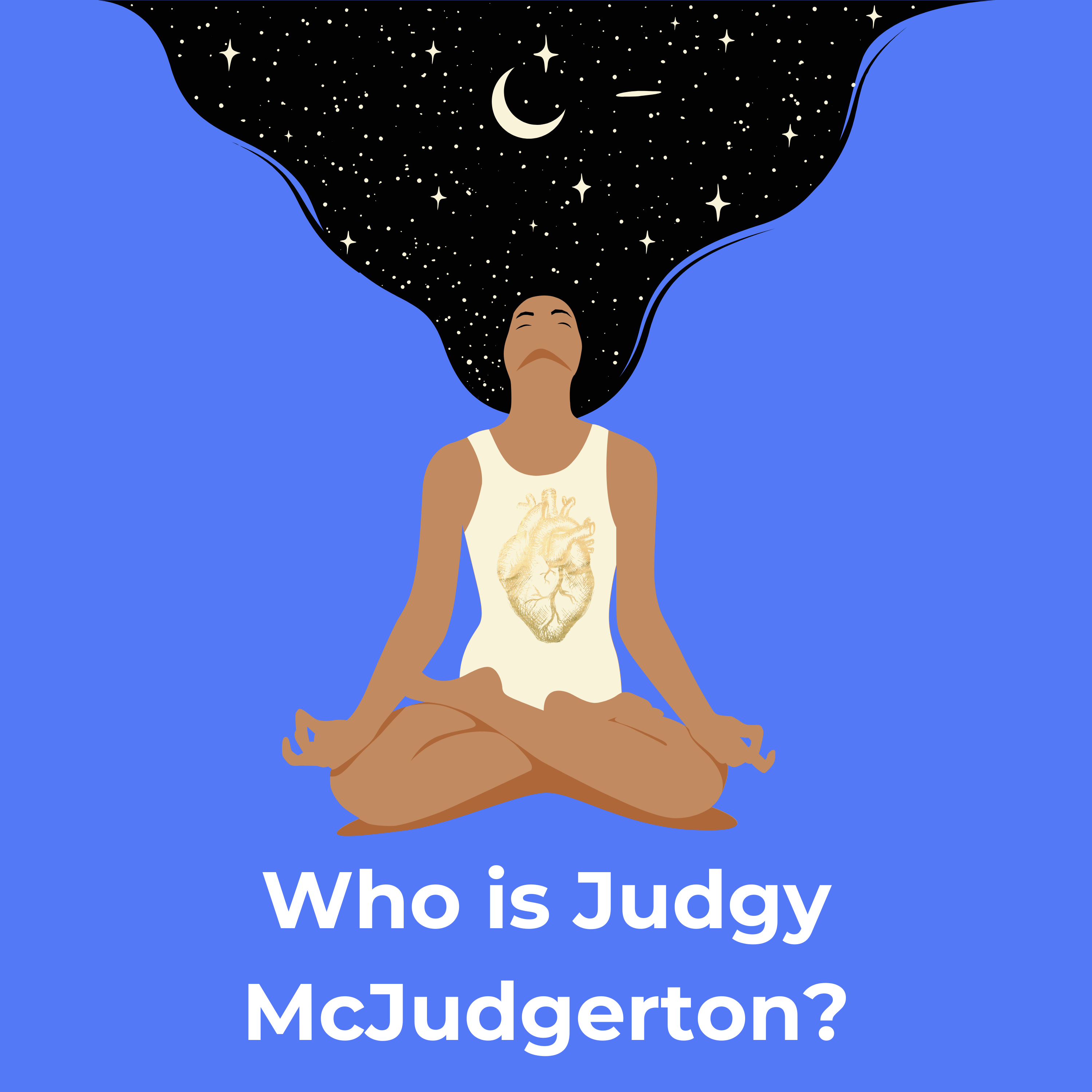Episode Transcript
[00:00:00] Speaker A: The world of healing can be treacherous. But suddenly Spiritual aims to provide real, honest, practical spiritual knowledge and wisdom for the true seekers among us.
The goal is to ignite the divine human within each listener, raising the collective consciousness for our planet. We will challenge your preconceptions, push your buttons, and encourage deep reflect. We're not here to adhere to the status quo of what the new age spiritual market wants you to buy into and believe.
Consider this your antidote to the woo woo and a place of woo. You.
[00:00:54] Speaker B: So we talked about the shadow. We've talked about what it is, how it manifests itself, how it shows up in our lives.
And what I have found is that once I start actually integrating my shadow, incorporating, I think that's a better word, incorporating my shadow into my being, into who I am, then I have much more fruitful expression of who I am. Like, it's much more.
It's easier to live when you're not demonizing yourself and when you're not judging yourself constantly about the quote, unquote dark parts that you have.
And so integrating the shadow or incorporating the shadow, we're going to give you a process. We're going to give you tools to actually do it rather than saying, oh yeah, this is something that you should do. Good luck, have fun. Have fun trying to figure it out. So I'm going to start off by. I think I mentioned this book in a previous podcast. It's called Existential Kink by Carolyn Elliott.
It is an incredibly useful and powerful book when it comes to shadow incorporation because it gives you all the steps on how to integrate your shadow. Now, as I said in the previous podcast about this particular book, please do not work with this book if you are clinically depressed, if you are working with bipolar disorder or any diagnosis that has you taking medication because it's not compatible. You need to be in a place where you have some light coming into your life, where you're able to get into that light space, order to do this work because it can be very triggering. Shadow integration can be very triggering because you're looking at the parts of yourself that you've disavowed, that you've demonized, that other people have demonized in your life, and you're loving and accepting them and seeing how you actually receive positives from your shadow.
For instance, I'll give you an example from the book, and I think I mentioned this in a previous podcast.
The author was in line at a government food bank.
She had a PhD. She basically quit academia and now she was in a place where she needed to receive government assistance. And she was waiting in line and it just dawned on her that something about her situation really, like, was exciting to her, that it turned her on to be in that situation.
So she started investigating, like, where is that place in me that likes the negative, outwardly looking situation that I'm in? And she started to really dig into it. So I think first seeing what we receive, like, what do we get out of being, let's say, angry? What are the rewards of being angry?
What are the rewards of being offended?
What does, what do, what do you get out of, you know, being angry at someone, being offended? Like, I immediately think of, well, I'm powerful when I'm angry because people fear me when I'm angry.
And so people will listen to me. So I get attention.
I get attention. Even though it's negative attention, I get something out of it. So her book really delves into, like, what you get out of your kinks, as she would call it, and how you can unravel that. So that's one book that I recommend. I also recommend the work by Byron Katie.
And she asks this very simple questions like, is it true? Is it really true? What would you be without it? Like, there's a whole process that Byron Katie does. So it's really great work and it's a good companion for existential kink. And then lastly, I cannot stress the work of Gabor Mate enough compassionate inquiry if you want to work with trauma, because a lot of our shadow is rooted in trauma, compassionate inquiry and all the work of Dr. Gabor mate, I highly, highly recommend you could find him on YouTube. Like, he's excellent. He also has different programs on his website that this podcast is not sponsored by Gabor Monte, to be clear.
[00:05:54] Speaker A: But he is Canadian, though.
[00:05:57] Speaker B: He is Canadian though, and Sean is Canadian.
So his work is outstanding. And I would definitely invite people to search on YouTube. You can find existential kick YouTube videos. On the meditations. She gives you multiple meditations. You can find the work of Byron Katie, again, free, on YouTube and also Gabor mate. So I highly recommend those three people.
[00:06:21] Speaker A: So I have a question, something I'm kind of struggling, not struggling with, but trying to reconcile.
I'm literally, since our last episode, I've been going through things we've been talking about here, as far as things coming up, things that were really long ago coming to the surface, me recognizing them and then me feeling lighter, like it's like it's a balloon and I popped it and it's just like, okay, dealt with that and other stuff coming up. And I'm thinking, why do we even need the shadow? Like, did Buddha have a shadow? Did Jesus have. Did these enlightened masks, did they have a shadow? Were these things coming up, but they weren't letting the man manifest? Or hey, I have a thought in my head, I want to slap that person. But then they didn't. Is there a need for the shadow? Or. I know we talked about last time, you actually need it, right? And I'm remembering now, my example, sun and moon, you need the shadow.
But for me, things have been coming up and then I'm like, okay, I know that was suppressed, but I. Okay, I felt it. It's gone now. But going through daily life, or is the shadow going to always be there?
[00:07:41] Speaker B: I'm so glad you brought this up because it's interesting. Something came up for me a few days ago in meditation where it was my father, who I always saw as a very dark person.
And I very much identify him as a shadow. Like, he was all shadow. It seemed just from his mental ill for me, like his mental illness, like all of that for me, he seemed like just a shadow being completely with no light.
And this is going to get really woo woo right now, so.
[00:08:15] Speaker A: Or woo you, woo you.
[00:08:18] Speaker B: So what I realized through my meditation is that in order for me to be light, to really hold my light in the highest capacity that I can, I needed the darkness.
I needed that dark presence in my life to train me to build my.
[00:08:40] Speaker A: Own light, to know what not to.
[00:08:43] Speaker B: Do, to know what not to do, but also to cultivate strength and courage internally and to know myself in a way that there's no way I could have known myself if I didn't have the pressure of the darkness.
I needed the darkness so that I could shine brighter, so that I can be stronger in my light in the world.
[00:09:11] Speaker A: I should start playing diamonds underneath while you're saying that.
[00:09:16] Speaker B: But also, like he energetically, from a spiritual contract level, again, this is very woo you. Woo me right now.
His contract was to sacrifice the light for him to be dark in my life so that I can be light, which is a deep contract. Like that is some heavy, heavy contract, soul contract stuff.
And so in that way, I was able to forgive him for his humanness, but also be grateful. And I think that's the last step of shadow integration and incorporation is when you can be grateful for your shadow, when you can be grateful to people who, from the outside, oppressed you or hurt you. Even. Like, I'm grateful like that man My dad hurt me in so many ways and has caused so much damage in my family, damage that a lot of people in my family are not going to recover from.
But I choose to see it differently and I'm grateful that I had that experience. Even my mother, like, there's a quote in some Batman movie where Bane, Bane is beating up Batman. Bane is a villain. And Bane said to Batman, I was born into the darkness. You merely adopted it. And I feel like I was born into darkness and other people just adopted it. And so I am grateful that I was born into that darkness because it made me the light being that I am now. Now do I have a shadow? 100% absolutely. But I'm able to dance with it, accept it, love it, and be grateful for it. And our shadows will always be there. And I think the more that we push them aside and demonize them, the more of a front and center place they will have in our life.
[00:11:22] Speaker A: Yeah, as you were saying that it's pretty much the same with my father.
And I'm thinking, and I could see people doing this too. Like, yeah, I'm good to go. Yeah, I've dealt with all this. Let, let, let me go visit him and, and see how, how well I'm doing. And that it's like, you know, you put a suit on, like you put a fire retardant suit on and then you jump into the fire and you're still gonna get burned. You're like, nope, not ready yet. But that, and that's his function. His function is to test me every time. So it's like, okay, where am I now? Nope, he's still getting to me. But for me it's more about the distance between the emotion and then the space and then thinking, recognizing it, and then not acting.
So it's, for me, it's about the emotional and then thinking about it and then the time. Because I noticed when things pop up, it's always an instant. It's like, who? Oh, I didn't, I didn't do. Who did that? Who, who started yelling? I mean, I know it's my mouth, but I didn't decide to start yell. It's always instant. So I'm trying to work on the, the time difference between popping up and going, no, I'm not going to do anything.
Every time you think you got it beat, it's like, nope. Because if you think you got it beat, that means you're trying to get rid of it and then you're giving it more energy as opposed to using it as a Tool, I guess, right?
[00:12:59] Speaker B: There will always be things in my life that will remind me of him or prior trauma. That's for everybody. No matter how much work you've done, no matter how much enlightenment, quote, unquote, you've reached there, you're still a human being.
My teacher yesterday was talking about the whole bucket of crabs analogy. It was basically, I've become fully healed and enlightened. If I'm out of the bucket. If I'm in the bucket, it means that I'm stuck in my own shadow, that I'm stuck in my own trauma and emotional, like, lack of emotional regulation and depression, anxiety, like, that's the crab bucket. And everybody is in the crab bucket. All human beings are in the crab bucket.
And people believe in some spiritual circles that after they've done a certain amount of work, they announce to everyone, I am out of the crab bucket. I am an enlightened being. I am fully healed.
Now what I said to my teacher is, you know, if I have a human body, I will always be in the crab bucket.
So until I don't have a human body, I'm here in the crab bucket. I may get glimpses of the edge of the crab bucket in meditation or work that I do, but I'll always be in the crab bucket because I'm a human being in a body.
So nobody for me, for me, my perspective, nobody is enlightened on this planet.
Nobody's fully enlightened ascended master because if you were, you wouldn't be embodied as a human being. Your physical body would not be able to hold that level of spirit.
Like your. The matter of your body, your carbon, your. The atoms that make up you as a human being would not be able to hold it.
So nobody is enlightened, fully enlightened. Nobody's an ascended master on this planet that's walking around. And if people tell you that they are, consider it a red flag.
[00:15:24] Speaker A: Run the other way.
[00:15:26] Speaker B: Be like, cool, that sounds great for you. That's really cute for you, like, run the other way. Nobody has. Has made it.
They wouldn't. You wouldn't be here as a human being. You would be a spirit in the spirit realm.



